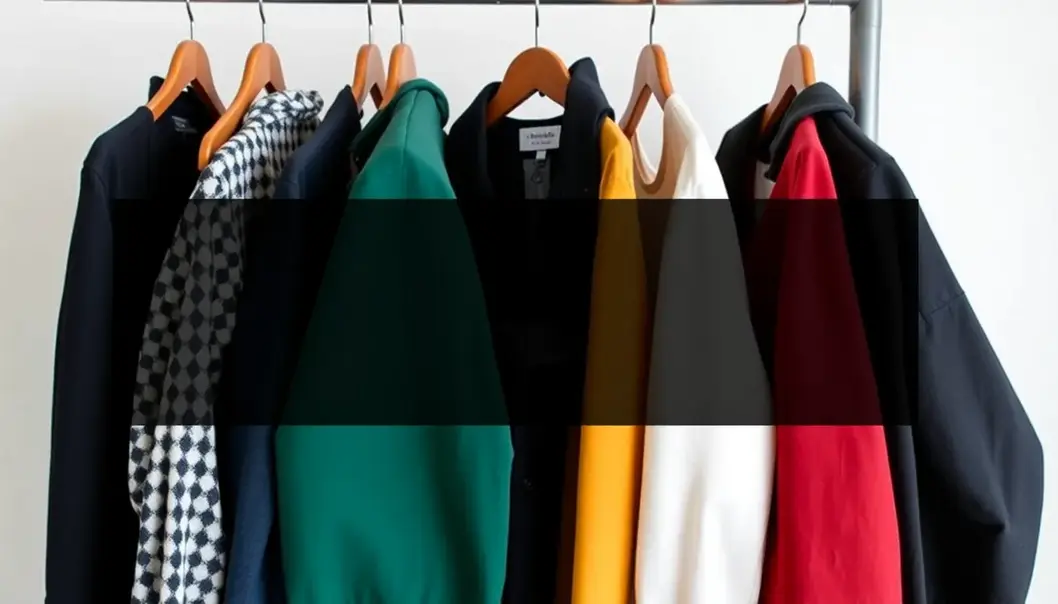Sustainable fashion is more than just a trend; it is a commitment to the health of our planet and a more ethical approach to clothing production. As the environmental impact of fast fashion becomes increasingly evident, discerning shoppers are looking for better alternatives that align with their values. Sustainable fashion offers a way to express personal style while reducing carbon footprints and supporting ethical labor practices. By choosing eco-friendly materials and supporting brands committed to sustainability, consumers can make a significant positive impact on the world. This article explores key aspects of sustainable fashion, guiding environmentally conscious shoppers toward making informed decisions.
Understanding Sustainable Fashion

Sustainable fashion represents an evolving paradigm in the apparel industry, prioritizing the planet’s welfare over mere profitability and convenience. To truly comprehend its essence, consider the intricate interplay of eco-friendly fabrics, ethical labor practices, and waste reduction strategies.
Eco-friendly fabrics form the cornerstone of sustainable fashion, minimizing the environmental impact of garment production. These materials include organic cotton, hemp, and bamboo, renowned for their reduced need for pesticides and water compared to conventional textiles. Furthermore, innovative alternatives, such as textiles made from recycled plastics or agricultural waste, exemplify the potential of sustainable materials to transform waste into wearable treasures.
Ethical labor practices, another critical pillar, ensure workers are treated with dignity and fairness throughout the supply chain. Millions globally work in the fashion industry under harsh conditions for meager wages. By focusing on ethical sourcing and fair-trade certifications, sustainable fashion seeks to shift this dynamic, prioritizing workers’ rights and contributing to their well-being. This commitment extends beyond fair wages, advocating for safe working environments and the eradication of exploitative practices.
A conscious approach to waste, through reduced production and innovative recycling techniques, further underscores the value of sustainable fashion. Fast fashion’s rapid turnover results in overproduction and mass waste. Sustainable brands, however, emphasize quality over quantity, crafting timeless pieces that decrease the frequency of wardrobe turnover. The integration of circular economy principles encourages recycling garments, repurposing fibers, and supporting initiatives like clothing swaps.
Together, these elements create a holistic framework for a fashion industry that respects its environmental obligations and social responsibilities. By choosing products made with eco-friendly fabrics and supporting ethical labor practices, consumers can significantly contribute to a healthier planet. To continue exploring how to integrate these conscientious decisions into personal fashion choices, visit this blog resource for additional insights.
Making Conscious Fashion Choices

Making conscious fashion choices involves more than just a shift in purchasing habits; it’s a genuine commitment to the planet and its resources. To successfully integrate sustainable fashion into your wardrobe, start by considering the lifecycle of each item, from production to disposal. This holistic approach helps reduce waste, supports ethical labor practices, and conserves natural resources.
Firstly, focus on quality over quantity. Sustainable fashion is about purchasing less but choosing better. Invest in timeless pieces of high quality that can be styled across multiple seasons. This not only reduces the frequency of purchases but encourages a personal style that’s less swayed by fleeting trends.
When identifying sustainable brands, it’s crucial to perform thorough research. Look for companies that are transparent about their supply chains and materials. Trustworthy brands often provide detailed information about their production processes, from raw material sourcing to ethical labor conditions. Certifications from recognized environmental organizations can also be an indicator of a brand’s commitment to sustainability.
Furthermore, pay attention to the materials used in fashion products. Opt for items made from eco-friendly fabrics such as organic cotton, bamboo, or recycled materials. These alternatives typically require less water and energy to produce, reducing the overall environmental impact. Brands showcasing innovations in textiles, such as biodegradable fabrics, are worth exploring.
Incorporate a mindful approach when it comes to the end of a garment’s life. Recycling or donating unwanted clothing extends its lifecycle and lessens the burden on landfills. Also, consider swapping clothes with friends or engaging with secondhand shops, both of which promote a circular fashion economy.
For additional guidance on selecting sizes to align with your conscious wardrobe choices, you might find this resource helpful: how-to-choose-the-perfect-t-shirt-size-according-to-us-sizing-standards.
Ultimately, making conscious fashion choices requires vigilance and a willingness to adjust longstanding habits. By prioritizing sustainability, you not only contribute positively to the environment but also advocate for fairer industry practices.
Final words
Sustainable fashion is an evolving movement that invites us to rethink our purchasing habits and prioritize the welfare of the planet. By embracing eco-friendly fabrics and supporting brands committed to sustainability, we can create a wardrobe that reflects our values and contributes to a healthier world. Making mindful fashion choices doesn’t just elevate our personal style; it paves the way for a more ethical, sustainable future.
Join the movement towards sustainable fashion by exploring our curated collection of eco-friendly brands and styles.
Learn more: https://www.eco-fashionstore.com/sustainable-collection
About us
Eco Fashion Store offers a wide range of stylish, environmentally-friendly clothing from brands committed to sustainability. By carefully selecting materials and designs that minimize environmental impact, Eco Fashion Store empowers shoppers to make sustainable and socially responsible fashion choices.

